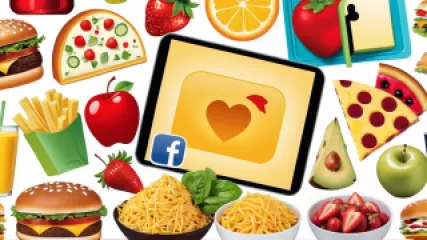Impact of Social Media on Food Choices
Introduction
Social media has become an integral part of our daily lives, influencing various aspects including communication, entertainment, and even our eating habits. With the rise of platforms like Instagram, Facebook, and TikTok, it has become easier than ever to share and discover food-related content. But what impact does social media have on our food choices? This research summary aims to explore the effects of social media on eating habits and provide insights into the potential consequences.
The Influence of Social Media on Food Choices
Social media platforms are flooded with images and videos of mouth-watering dishes, trendy diets, and food-related trends. As a result, users are constantly exposed to a wide range of food choices and culinary experiences. This exposure can significantly influence their own decisions when it comes to what they eat.
1. Peer Influence: One of the primary ways social media affects our food choices is through peer influence. When we see our friends, family, or influencers endorsing certain foods or diets, we might feel inclined to try them ourselves. This can be particularly influential when these individuals are perceived as credible or knowledgeable in the field of nutrition.
2. Food Porn Culture: Social media platforms have given rise to the "food porn" culture, where users share aesthetically pleasing images of indulgent and visually appealing dishes. These images can evoke feelings of desire and craving, leading individuals to seek out similar foods for themselves. The constant exposure to such content can shape our perception of what constitutes a desirable meal.
3. Trendy Diets and Food Fads: Social media is a breeding ground for diet trends and food fads. Whether it's the keto diet, intermittent fasting, or the latest superfood craze, these trends often gain popularity through social media platforms. As a result, individuals may be more likely to adopt these diets or incorporate specific foods into their eating habits based on what they see trending online.
The Potential Consequences
While social media can provide a wealth of information and inspiration when it comes to food choices, it is essential to consider the potential consequences that may arise from its influence.
1. Unrealistic Expectations: The curated nature of social media can create unrealistic expectations around food. When we constantly see picture-perfect meals and bodies, we may feel pressure to achieve similar standards. This can lead to unhealthy relationships with food, body image issues, and even the development of eating disorders.
2. Misinformation and Lack of Nutrition Education: Not all information shared on social media is accurate or backed by scientific evidence. There is a risk of misinformation spreading rapidly, leading individuals to make ill-informed food choices. The lack of proper nutrition education and critical thinking skills can exacerbate this problem, potentially impacting overall health and well-being.
3. Disordered Eating Patterns: The constant exposure to food-related content and the pressure to adhere to certain diets or trends can contribute to the development of disordered eating patterns. This includes restrictive eating, binge-eating, and other unhealthy behaviors, as individuals try to emulate what they see online without considering their own unique nutritional needs.
Conclusion
Social media undoubtedly plays a significant role in shaping our food choices. From peer influence to the promotion of trendy diets, it has the power to sway our decisions and preferences. However, it is crucial to approach social media content with caution and critical thinking. By being mindful of the potential consequences and ensuring access to reliable nutrition education, we can navigate the influence of social media on our eating habits in a healthy and informed way.






